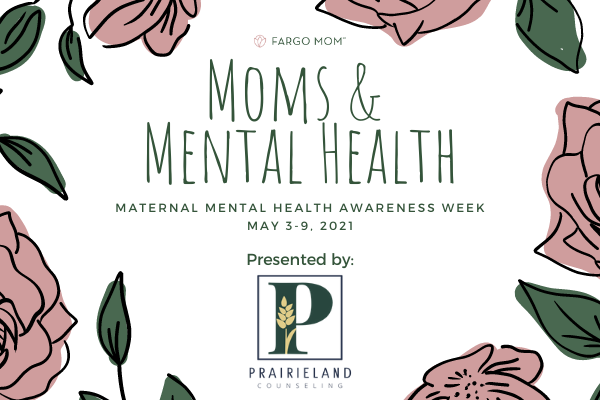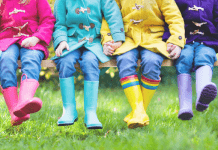
Note: If you are struggling with you mental health, please reach out to Postpartum Support International at 1-800-944-4773 or dial 2-1-1 to connect with someone locally.
I’m a little bit (ok fine, a lot) of a perfectionist.
If I got an A on a paper in high school or college, I wouldn’t celebrate the A. Instead, I would look at what made it a 95% instead of a 97%. I’ve always been a worrier when it comes to grades, but didn’t struggle with generalized anxiety.
But immediately after my twins were born, I started worrying about everything.
I didn’t think too much of it and assumed it was part of being a mom. Postpartum mental health concerns were on my radar; I knew I had factors which put me at an increased risk. However, I had a limited frame of reference for what postpartum mental health struggles might look like. I assumed it meant feeling overwhelmingly sad, or crying all the time.
That wasn’t my experience, I was just worried. And I’ve always been a worrier.
I worried that the swaddle needed to be absolutely perfect. That something terrible would happen if my babies were fed 3.5 hours apart instead of every 3 hours.
Prior to having kids, I would make decisions quickly and rarely second guess them. I found myself struggling with simple things, like when to brush my teeth. Do I do it after the 5:00 a.m. feeding? Or after we are up for the day at 7:00 a.m.? I worried that something I said to my best friend 10 years ago still profoundly offended her. Strangely, I found myself thinking over and over about the time in 8th grade when I messed up my lines in the school play.
I didn’t tell anyone about how I was feeling.
From the outside, it looked like I was doing great. We had a solid routine. The babies and I were dressed and ready for the day by 9:00 a.m. most mornings.
I was struggling in silence, but I just assumed it was what my life would look like until the babies were older.
Thankfully, I had people in my life who were able to recognize that things weren’t okay and convinced me to reach out to my doctor. I remember answering “almost always” for nearly every question on the screening tool.
I was diagnosed with postpartum psychosis.
Overall awareness of postpartum mental health concerns has improved, but there is still a lot of stigma associated with this diagnosis. I’m sharing what my diagnosis was, because my experience was different than what might be portrayed in movies or on the news. I never had thoughts of hurting myself or anyone else. Instead, I truly believed if I made any mistake with swaddling or feeding, there would be a terrible outcome.
Initially, my symptoms were similar to what someone struggling with anxiety might experience. However, the symptoms rapidly progressed.
I felt overwhelmingly paranoid. Every time my husband got a text, I thought it was something about me. I was hypervigilant and felt that my twins needed constant monitoring. Even further, I was convinced that I no longer needed to sleep and could watch over them 24/7. I believed news segments had special meaning just for me.
Fortunately, I live in a community where I could access the services I needed quickly. It took a few tries to get the right combination of medications, but with the right medications and an amazing social worker, I felt like myself again within about a month.
Post-partum mental health: reach out when you’re struggling.
I urge moms to reach out to their healthcare providers if something doesn’t feel right. Be aware of symptoms associated with postpartum mental health concerns; especially because there can be such a wide range of symptoms an individual might experience.
Being a new mom can be so hard, and it can be challenging to realize when our own behavior is out of the “normal” range. Listen to your body, and trust when your loved ones see some red flags. There is no shame in getting help, and as much as we want to care for our new babies, we need to care for ourselves just as much.
For local help, see Counselors in Fargo-Moorhead: When & How to Get Help.
For more information and help, Postpartum Support International offers a list of professionals who have received training in perinatal mental health. You can contact them at 1.800.944.4773 or www.postpartum.net.

















